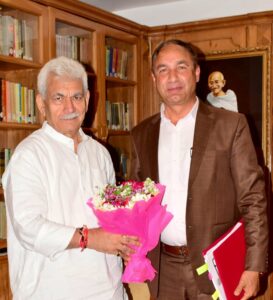Tibetan MPs exhort Indians to stand up against China’s ‘expansionism’
Jammu, Sep 1 (PTI) The exiled members of Tibetan Parliament on Thursday criticised China for committing atrocities on the people of Tibet and urged people of India to stand up against the nation and its expansionist policy.
“We (People of India) should politically stand up against the Chinese government and its expansionist policy. China is setting up bases at different places and it is aimed at threatening and invading other countries. It is dangerous for the whole of south Asia,” Tibetan MP Dawa Tsering said.
Tsering was part of a parliamentary delegation which also included Yeshi Dolma and Tenpa Yarphel. The group has been in Jammu since 27 August for the upcoming ‘Tibet advocacy’ event.
Tsering alleged China was committing grave atrocities against the Tibetan religion, culture, and environment. “They are damaging Tibet. It will effect South Asia and India. That is why we have come here to highlight the issue.”
He thanked the Indian government for providing shelter to the Tibetan refugees and extending other support over the last six decades.
“We have two core issues. One is that we are living here for the past 62 years in exile as refugees from Tibet. The government of India and public has supported us. They have helped us in safeguarding our identity and culture,” he said.
The second issue pertains to the need to educate people about the atrocities being committed by China in Tibet, he said.
“Since Chinese premier Xi Jinping came to power with an expansionist outlook, the situation has further deteriorated. That is why China came out with the map,” Tsering said, as he called for a united front against China’s “expansionist, communist and undemocratic” mindset.
“It is high time all countries came together against China, particularly in the field of trade. We should boycott Chinese goods. If we delay, all South Asian countries will suffer,” he said.
Yeshi Dolma, another Tibet MP in exile, reflected on Tibet’s historical role as a buffer state between the world’s two most populous nations.






